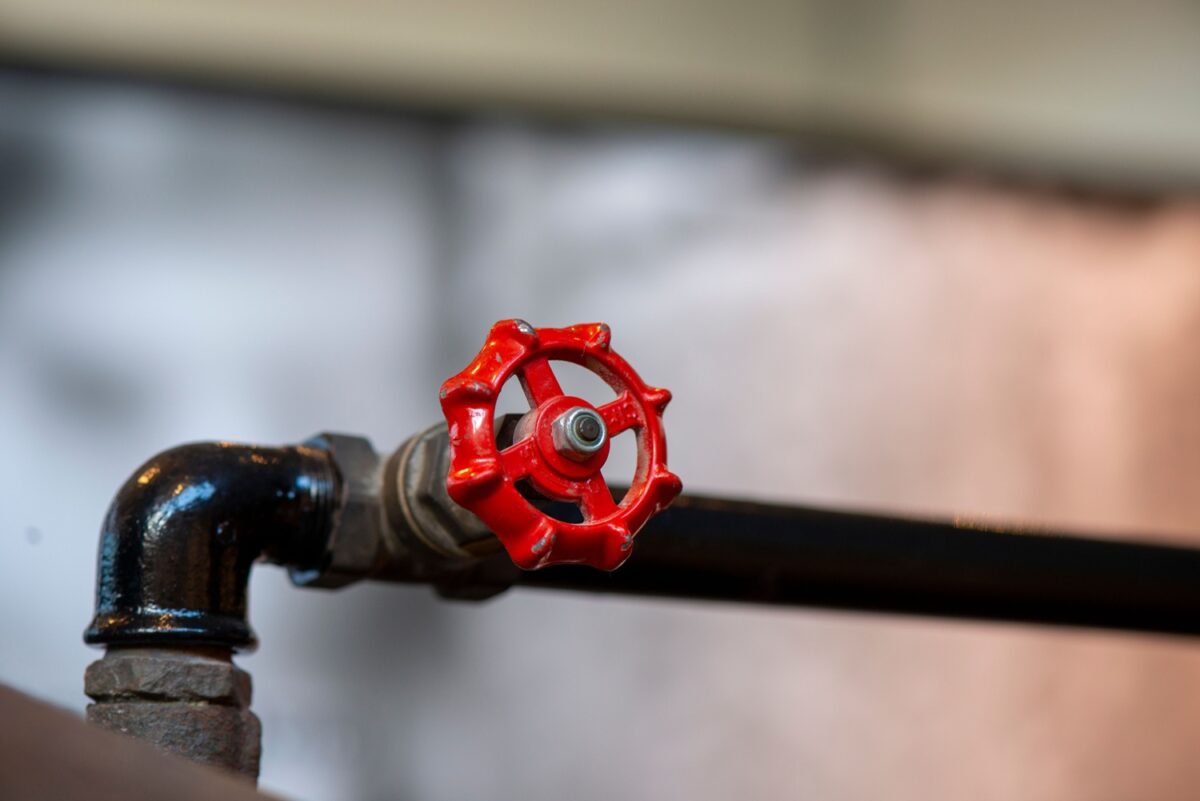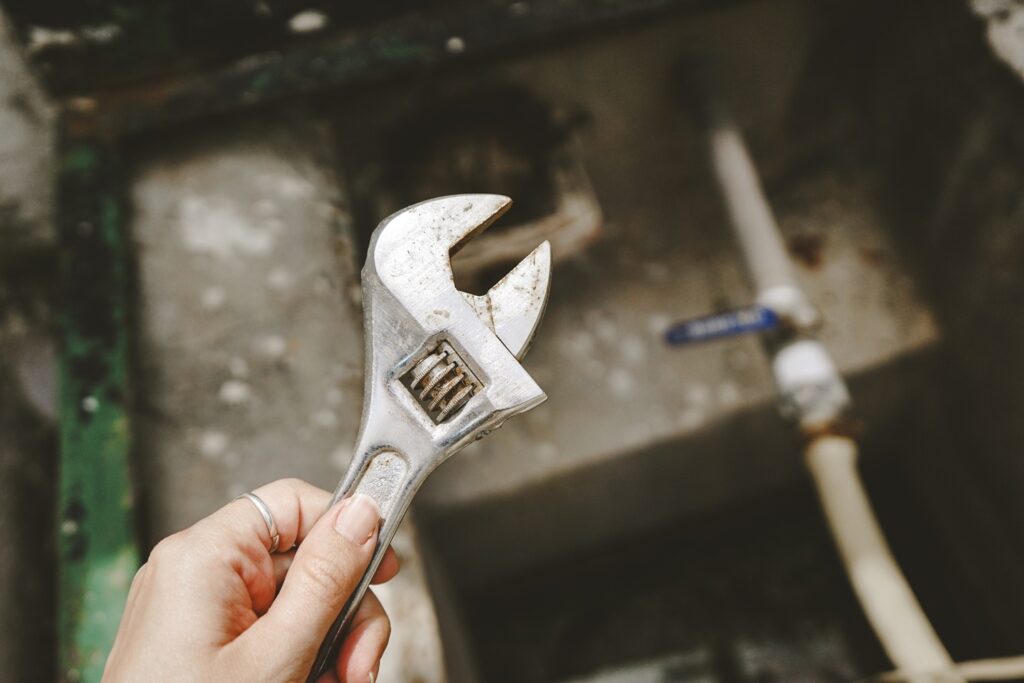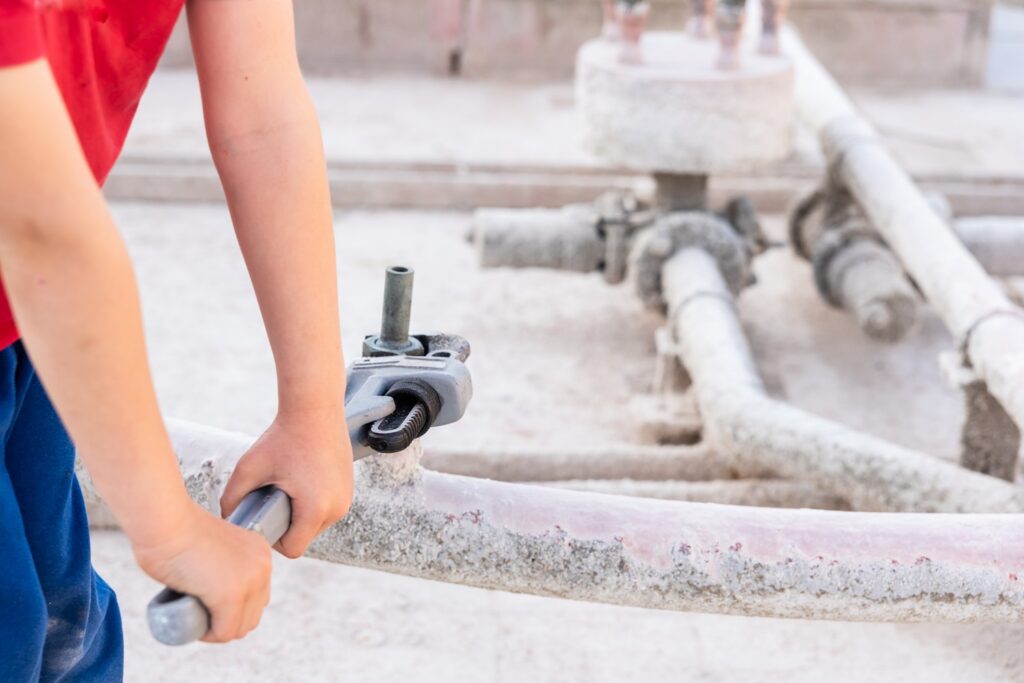Summers in Arizona aren’t just hard on people—they’re tough on plumbing systems too. With triple-digit temperatures common across Tucson, Phoenix, and surrounding areas, your home’s pipes face unique challenges that can lead to leaks, breakdowns, and costly repairs if not addressed early. At Code Blue Plumbing, we’ve seen firsthand how heat impacts plumbing, and we’re here to help you stay ahead of the damage. Here are key issues to watch for—and smart ways to protect your pipes this summer.
Higher Pipe Pressure: A Hidden Risk During Arizona Summers
Arizona’s sweltering summer heat doesn’t just impact your comfort—it also affects your plumbing. As outdoor temperatures rise, the water inside your plumbing system heats up too. When water gets hotter, it expands. That expansion increases the internal pressure within your pipes, especially in enclosed systems like water heaters or homes with poor ventilation around plumbing lines.
This rise in pressure may not be noticeable at first, but over time, it creates additional stress on your pipes, joints, valves, and fixtures. The risk is even greater if your plumbing system lacks a properly functioning pressure regulator. Without one, excessive pressure can cause fittings to loosen, pipes to crack, or even burst—leading to water damage, mold growth, and costly emergency repairs.
In areas like Phoenix and Tucson, where triple-digit temperatures are common for weeks on end, homeowners are at a heightened risk for these types of issues. That’s where Code Blue Plumbing can help.
Our experienced plumbers can quickly check your water pressure and assess whether it’s within a safe range (typically between 40 and 80 psi). If the pressure is too high, we can install or fine-tune a Pressure-Reducing Valve (PRV) to stabilize your system. A PRV is a small but vital device that helps regulate water pressure, protecting your entire plumbing system from damage.
Regular pressure inspections are especially important in older homes or properties that haven’t had a recent plumbing upgrade. A simple visit from Code Blue Plumbing can give you peace of mind—and prevent a plumbing emergency when the heat is at its peak.
Tip: If you hear banging in the pipes, notice dripping faucets, or experience inconsistent water flow, those may be signs of high water pressure. Don’t wait until it becomes a major problem—schedule a pressure check with Code Blue Plumbing today.
Arizona’s relentless summer heat does more than make the outdoors uncomfortable—it also takes a serious toll on your home’s plumbing. As temperatures soar past 100°F in cities like Phoenix and Tucson, the intense heat accelerates the natural aging process of your pipes, especially in areas with poor ventilation or direct sun exposure.
Plastic pipes, such as PEX or PVC, are particularly vulnerable to warping or softening when exposed to prolonged high temperatures. Over time, this thermal stress can lead to deformation, cracking, or joint separation—resulting in leaks or water pressure problems. Meanwhile, metal pipes, such as copper or galvanized steel, are prone to faster corrosion in high heat environments. Heat can cause the protective oxide layers on metal to break down more quickly, leaving the material exposed to oxidation and eventual failure.
Outdoor plumbing lines, pipes in unconditioned attics, garages, and even under concrete slabs are all at risk during the summer months. These pipes endure not only extreme heat but also thermal expansion and contraction, which can weaken seals and connections over time.
That’s where Code Blue Plumbing comes in. Our team of licensed plumbers is experienced in identifying early signs of heat-related wear and tear. We perform thorough inspections of exposed or at-risk piping and recommend protective solutions, such as pipe insulation or rerouting vulnerable lines. Insulating your pipes helps reduce temperature fluctuations and prevents long-term structural damage.
If your plumbing system is aging or you’re not sure what kind of materials were used, it’s worth scheduling a proactive inspection. At Code Blue Plumbing, we help homeowners stay ahead of the curve by addressing heat-related deterioration before it leads to expensive repairs.
Tip: If your home has pipes in the attic or exterior walls, consider adding insulation or shading those areas to protect your plumbing. Call Code Blue Plumbing to evaluate your system and ensure it’s built to withstand another brutal Arizona summer.
Overheating Water Heaters: A Hidden Summer Hazard
When Arizona’s scorching summer temperatures settle in, most homeowners don’t realize that their water heaters are under just as much environmental stress as their pipes. In cities like Tucson and Phoenix, where outdoor temperatures regularly exceed 100°F, the ambient heat surrounding your water heater—especially if it’s located in a garage, attic, or utility closet with poor ventilation—can cause the unit to overheat, even when it’s not actively in use.
Because the incoming water is already warmer in the summer, your water heater doesn’t need to work as hard to bring it up to temperature. However, if the thermostat is still set for colder winter conditions, it can overheat the water, causing excessively hot water to flow from your taps. Not only does this create a scalding risk, especially for children or older adults, but it also puts unnecessary strain on the tank and internal components, potentially leading to leaks, valve malfunctions, or even a full system breakdown.
Increased internal temperature also leads to higher pressure inside the tank, which can trigger the temperature and pressure relief (T&P) valve. While this safety feature is essential, it’s not meant to be tripped regularly—frequent activation can wear out the valve prematurely or mask a more serious issue.
That’s why it’s important to adjust your water heater for summer conditions. Code Blue Plumbing can help by inspecting your unit, checking the thermostat setting, and ensuring that the T&P valve and expansion tank are working properly. We recommend setting your water heater to 120°F, which is hot enough for household needs but far safer and more energy-efficient in the summer heat.
If your water heater is older or located in a high-heat environment, we may also recommend adding insulation, relocating the unit, or considering a tankless water heater that’s better suited to Arizona’s extreme climate.
Tip: If you notice water that’s too hot to touch, hear odd noises from your water heater, or see signs of dripping around the pressure valve, it’s time to call Code Blue Plumbing. A quick adjustment or inspection today can prevent a costly and dangerous problem tomorrow.
Ground Shifting: A Silent Threat Beneath Your Property
Arizona’s desert landscape is known for its extreme and unpredictable conditions—long stretches of dry, scorching heat followed by sudden, heavy monsoon rains. This cycle of dryness and saturation causes the soil to expand and contract, creating instability beneath the surface. As the ground shifts, it can place stress on underground plumbing lines, especially those connected to your home’s water supply or sewer system.
In particular, older homes in Phoenix, Tucson, and surrounding areas are at higher risk because their underground pipes may be made from outdated materials like clay, cast iron, or thin-walled PVC. These materials are less flexible and more likely to crack, collapse, or become misaligned when the soil moves. Even newer pipes aren’t immune—ground movement can affect joint fittings or cause gradual sagging (also known as “bellies”) in the line, which can lead to slow drains or blockages.
This kind of damage often happens out of sight, making it difficult to detect until a major issue arises. You might notice reduced water pressure, spiking water bills, unexplained puddles or soggy spots in your yard, or even sewage smells—all of which could indicate ground shifting damage to your plumbing system.
At Code Blue Plumbing, we specialize in locating and repairing underground pipe issues before they escalate. Using advanced diagnostic tools such as video camera inspections, leak detection equipment, and pressure testing, we can identify hidden damage with minimal disruption to your property. If we find a problem, our team can recommend cost-effective solutions like trenchless pipe repair, re-piping, or strategic excavation.
Tip: If you’ve gone through a dry summer followed by heavy rains—or if your property sits on expansive or sandy soil—it’s a good idea to schedule a professional plumbing inspection. Code Blue Plumbing can help you catch underground issues early, saving you from expensive repairs and property damage in the long run.
Evaporating Traps: A Common but Overlooked Summer Issue
One of the lesser-known effects of Arizona’s extreme summer heat is the evaporation of water in drain traps, especially in parts of the home where plumbing is rarely used. Drain traps—commonly the U- or S-shaped pipes beneath sinks, tubs, floor drains, and laundry basins—are designed to hold a small amount of water that forms a barrier to prevent sewer gases from entering your living space.
However, in the high heat and low humidity typical of Tucson and Phoenix summers, this water can evaporate quickly, especially in unused or rarely visited areas of the home like guest bathrooms, basements, garages, or utility rooms. Once the trap dries out, it opens a direct path for unpleasant and potentially hazardous gases to seep into the home. You may notice musty or foul odors, or even experience headaches, dizziness, or nausea if exposure to sewer gas becomes prolonged.
Fortunately, this issue is entirely preventable with a little routine maintenance—and Code Blue Plumbing is here to help. Our expert team can inspect all of your drains to ensure they’re functioning properly and advise you on best practices to prevent trap evaporation. We often recommend running water through infrequently used drains every couple of weeks to replenish the water seal. For added protection, pouring a small amount of mineral oil into the drain can slow down evaporation by creating a barrier on top of the water.
In some cases, persistent trap evaporation could indicate a bigger issue—like negative air pressure in the plumbing system or a faulty vent pipe—especially if odors return shortly after flushing the drain. If that happens, Code Blue Plumbing can perform a comprehensive inspection to diagnose and resolve the root cause.
Tip: Make a checklist of lesser-used drains in your home and include them in your monthly home maintenance routine. And if you ever detect an unexplained sewer odor, don’t wait—call Code Blue Plumbing to investigate and resolve the issue before it becomes a health concern.
Scaling Increase: How Heat Accelerates Hard Water Damage
If you live in Arizona, you’re no stranger to hard water—water that’s high in minerals like calcium and magnesium. While hard water is a year-round issue, Arizona’s intense summer heat can make it even worse, especially when it comes to scaling inside your plumbing system. As temperatures rise, the rate at which mineral deposits separate from heated water increases, causing scale buildup to accelerate in your pipes, faucets, showerheads, and appliances.
This buildup—known as limescale—clings to the inside of plumbing lines and water-using fixtures, gradually reducing water flow and efficiency. Over time, it can lead to clogged pipes, reduced water pressure, and even permanent damage to appliances like water heaters, dishwashers, and washing machines. In particular, hot water systems are vulnerable because heat speeds up the rate at which minerals solidify and stick to surfaces.
In areas like Phoenix and Tucson, where water hardness levels are among the highest in the country, it’s essential to take proactive steps to control scale before it causes costly repairs or system replacements. That’s where Code Blue Plumbing comes in.
We offer expert solutions to combat hard water issues, including the installation of whole-home water softeners that remove excess minerals before they ever reach your pipes. Water softeners can dramatically reduce scale buildup, improve the lifespan of your plumbing, and even help your skin and hair feel better after a shower. For homeowners who already have scale buildup, we also offer professional descaling services to clear out deposits and restore optimal water flow.
Tip: If you notice white crusty buildup around your faucets, cloudy dishes, or frequent appliance issues, it’s time to talk to Code Blue Plumbing about water softening and descaling options. A small investment in hard water treatment now can save you thousands in future plumbing repairs.
Degrading Water Supply Lines: A Risk Lurking Behind Your Appliances
Arizona’s extreme summer heat doesn’t just affect outdoor plumbing—it can also accelerate wear and tear on indoor water supply lines, especially in uncooled spaces like garages, laundry rooms, or utility closets. Many appliances, including washing machines, dishwashers, refrigerators with ice makers, and toilets, rely on flexible rubber or plastic hoses to carry water. Unfortunately, these materials are especially vulnerable to heat-related deterioration.
In high temperatures, rubber and plastic hoses can become brittle, dry out, or weaken at their connections, making them far more likely to crack or rupture. This is particularly true in homes where water supply lines are installed near hot walls, inside poorly ventilated cabinets, or in areas that lack air conditioning. If a supply line fails, the result can be sudden and catastrophic—flooding, structural damage, and expensive repairs that can often be avoided with proper preventative care.
At Code Blue Plumbing, we’ve seen countless cases where a simple, inexpensive fix could have prevented major water damage. That’s why we recommend replacing rubber or plastic supply lines with braided stainless steel hoses, which are far more durable, heat-resistant, and less likely to burst under pressure. These upgraded lines offer peace of mind and are often recommended by insurance companies as a proactive measure.
We also encourage homeowners to inspect all appliance water supply lines at least once a year. Look for signs of cracking, bulging, rust at the fittings, or moisture around the connections. Better yet, schedule a routine plumbing check with our team. Code Blue Plumbing can quickly assess the condition of your lines and replace any aging or damaged hoses before they fail.
Tip: If your home is more than 10 years old and you’ve never replaced the supply lines, it’s time for an upgrade. Call Code Blue Plumbing to safeguard your appliances—and your home—against heat-related failures this summer.
The Importance of Plumbing Inspections During Arizona’s Hot Summers
Arizona’s summer heat is no joke—and neither is the toll it can take on your home’s plumbing system. As temperatures climb into the triple digits across Phoenix, Tucson, and surrounding areas, your pipes, fixtures, and water-using appliances face increased stress. That’s why scheduling a professional plumbing inspection before or during the summer months is one of the smartest things a homeowner can do.
At Code Blue Plumbing, we’ve seen how the intense desert heat accelerates common plumbing issues—from pipe expansion and water heater overheating to cracking supply lines and evaporating drain traps. Many of these problems start small and go unnoticed until they lead to costly damage. A thorough inspection by one of our licensed plumbers can identify these early warning signs before they become emergencies, saving you time, money, and frustration.
Summer inspections are especially critical for homes with aging plumbing systems or those that haven’t been checked in years. We look for signs of mineral buildup from hard water, worn-out connectors, leaks in both exposed and underground lines, and faulty pressure regulators. Our inspections include checking water heaters, evaluating insulation on exposed pipes, testing fixtures, and ensuring all components are working efficiently and safely under summer conditions.
In short, a summer plumbing inspection isn’t just preventative—it’s proactive. It gives you peace of mind knowing that your system can handle the unique challenges of Arizona’s extreme weather. Whether you’re preparing for vacation, welcoming guests, or simply trying to keep your home running smoothly, Code Blue Plumbing is here to make sure your plumbing is ready for the heat.
Tip: Don’t wait until something breaks in the middle of a heat wave. Contact Code Blue Plumbing today to schedule your summer inspection and keep your home protected all season long..
Stay Cool, Stay Safe
Arizona summers don’t take it easy on your plumbing—but with the right precautions, you can avoid damage, save money, and keep everything running smoothly. Whether you need a quick inspection or emergency repair, the experts at Code Blue Plumbing are ready to help.
Call us today or visit codeblueaz.com to schedule your summer plumbing checkup.



